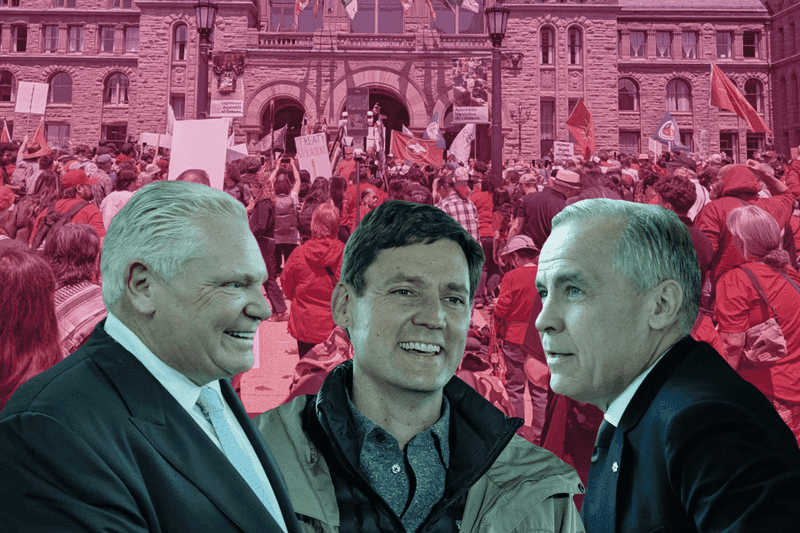
New York, May 1891
On May 24, 1888, the President of the United States invited the nations of the Americas and the Kingdom of Hawaii in the Pacific Ocean to a Pan-American International Conference in Washington, convened by the Senate and the House of Representatives for the purpose of studying, among other things, "the adoption by each government of a common silver currency to be put into compulsory use by the citizens of every American nation in their reciprocal commercial transactions."
On April 7, 1890, the Pan-American International Conference, of which the United States was a part, recommended that an international monetary union be established; that as a basis for this union, one or more international coins, uniform in weight and legality, should be minted for use in all the countries represented at this Conference; that a Commission should meet in Washington to study the quantity, value and ratio of metals in which the international coinage should be minted; and that a Commission should be convened to study the quantity, current rate, value and ratio of metals in which the international coinage would be minted.
On March 23, 1891, after a month's extension requested by the United States delegation from the International Monetary Commission meeting in Washington, "in order to have time to hear the pending opinion of the House of Representatives on the free minting of silver", the United States delegation declared before the Conference that the creation of a common silver coinage of compulsory tender in all the American countries was a fascinating dream that could not be attempted without the agreement of the other powers of the world. The delegation recommended the use of gold and silver for currency, with a fixed relationship. Its desire was to invite the nations of America, and the Kingdom of Hawaii, which sat at the Conference, together with other world powers, to a Universal Monetary Congress.
What lesson is to be learned by America, from the International Monetary Commission, brought about by the United States, with the approval of Congress in 1888, to discuss the adoption of a common silver currency, and which the United States says, in 1891, is a fascinating dream?
What we must consider is not the form of things, but their spirit. What matters is the real, not the apparent. In politics, the real is what is not seen. Politics is the art of combining, for the increasing inner well-being, any country's diverse or opposing factors, and of saving the country from the open hostility or the covetous friendship of other nations. In every invitation between nations one must look for hidden motives. No nation does anything against its interest; from which it follows that what a nation does is what is in its interest. If two nations do not share common interests, they cannot come together. If they do come together, they clash. Lesser nations, which are still in the throes of gestation, cannot safely join forces with those who seek a union with weaker nations asa aa solution for the excessive production of a compact and aggressive population, and a vent for their restless masses. The political acts of true republics are the composite result of the elements of national character, economic needs, parties' needs, and the needs of political leaders. When a nation is invited to unite with another, ignorant and bewildered statesmen may do it with haste, young people who are fond of beautiful ideas may celebrate it without judgment, venal or demented politicians may receive it as a gift, and glorify it with servile words. But he who feels in his heart the anguish of his homeland, he who watches and anticipates, must investigate and determine what elements compose the character of the nation that invites and that of the invited, and if they are predisposed to work together by common antecedents and habits, and whether or not it is probable that the frightful elements of the nation that invites will develop in the union that it seeks, to the peril of the invited nation. He must ask what are the political forces of the inviting country, and the interests of its parties, and the interests of its people when the invitation is extended. And he who decides without investigating, or hopes for union without being informed, or recommends it out of mere slogans and dazzlement, or defends it out of the smallness of their provincial soul, will do wrong by America. At what moment was the International Monetary Commission convened? Does it, or does it not, show that American international policy is a symbol of local politics and an instrument of party ambition? Has the United States itself given this lesson to Latin America or not? Should Latin America disregard it, or take advantage of it?
A nation rises and acts upon other nations in accordance with the elements of which it is composed. The action of one country, in a union of other countries, will conform to the elements that predominate within it, and cannot diverge from them. If a hungry horse is allowed to roam on the grassy and fragrant plain, the horse will lie down on the grass, and will sink deep into the grass, and will bite furiously whoever gets in its way.
Two condors, or two lambs, come together without as much danger as a condor and a lamb. The same young condors, happily engaged in the spirited games and boastful contests of youth, would not arrive in time and would not arrive together to properly defend the prey that the mature condor would snatch from them. Foresight is the essential quality in the constitution and government of nations. To govern is nothing more than to foresee. Before binding nations together, one must consider what harm, or what benefits, may naturally come from their constituent elements.
And it is not only necessary to determine whether nations are as grand as they appear, and whether the very accumulation of power which blinds the eager and the inept was not produced at the sacrifice of higher qualities, and by virtue of those qualities that menace those who admire it; but rather, even when greatness is genuine and deep-rooted, when it is lasting, just, beneficial and friendly, it may be of a different type and use different methods than the greatness aspired to and achieved by other nations, with their own methods — which are indeed the only viable ones — by a people that conceives of life differently and lives in a different context, in different ways. In community life, ideas and habits must be held in common. For those who are to live together, not only must their common purpose of life be the same, but their way of living, too. Either they fight and despise each other, or they hate each other, because of differences of manner, as they hate each other over differences of purpose. Countries that have no common methods, even if they had identical goals, cannot unite to realize their common objectives in identical ways.
He who knows and sees cannot honestly say - for this could only be said by those who do not know and do not see, or those who for their own benefit do not want to admit - that even in the United States today there prevails that most human and virile element, though always selfish and aggressive, of the rebellious colonists, who are either second-class nobles or Puritan bourgeoisie. But this element — which consumed the Native race, promoted and lived by the enslavement of another race, and subjugated or robbed the neighboring countries — has been sharpened, not softened, by the continual grafting of the European masses, a tyrannical breeding of political and religious despotism, whose only common quality is the cumulative appetite to exercise the authority over others which was exercised over them. They believe in need, in the barbaric right as the only right: "This will be ours, because we need it". They believe in the incontrovertible superiority of "the Anglo-Saxon race over the Latin race". They believe in the inferiority of the Black race, which they enslaved yesterday and continue to oppress today, and of the Indian race, which they are exterminating. They also believe that the peoples of Spanish America are composed principally of Indians and Blacks. As long as the United States knows nothing else about Spanish America and do not respect it any more — as they could come to respect it with the incessant, urgent, numerous and wise explanation of our peoples and resources — can the United States invite Spanish America to an honest and beneficial alliance? Does a political and economic alliance with the United States benefit Spanish America?
Whoever says economic union, says political union. The nation that buys, rules. The nation that sells, serves. Trade must be balanced to ensure freedom. The nation that wishes to die, sells to just a single nation, and the nation that wishes to save itself, sells to many. One cousntry's excessive influence in the commerce of another becomes political influence. Politics is the work of men who surrender their feelings, or part of their feelings, to an interest. When a strong nation supplies food to another, the strong nation makes itself useful to the other. When a strong nation wants to do battle with another, it demands alliances and service from those nations that depend on it. The first thing that a nation does to dominate another, is to separate that nation from the others. Let the people who want to be free, be free to conduct their own business. Let them distribute their commerce among equally powerful countries. If it should prefer one, let it prefer the one that needs it least and disdains it least. Let there be no union of America against Europe, nor of Europe against an American nation. The geographical circumstance of living together in America does not necessitate a political union, except in the mind of some political candidate or undergraduate student. Commerce moves with the slopes of land and water and follows whoever has something to exchange, be it monarchy or republic. Union with the world, and not with one part of it; not one part of the world against another. If the family of American republics has any duty, it is not for one of them to trample future republics.
Nor in arranging a currency system, which is an instrument of trade, can a healthy nation — out of deference to a country that never helped it, or did so out of emulation or fear of another — simply dispense with the nations that provide it advances on the funds necessary for its enterprises, owe it affection and faith, stand by it and offer it ways out in times of crisis, treat it as an equal without arrogant disdain, and buy its products. Their should be one standardized universal currency. There shall be one. Everything primitive, like different currencies, will disappear, when there are no longer any primitive nations. Let the earth be filled with equal and enlightened peace so that this peace may prevail in commerce as in politics. A single currency must be procured. Everything must be done to prepare for it. The legal use of essential metals should be recognized. A fixed ratio between gold and silver should be established. Everything that brings men closer together and makes their lives more moral and livable must be sought and encouraged. Everything which brings nations closer together must be done. But the way to bring them closer is not to set them against each other; nor does one bring about world peace by arming a continent against the nations that have given it life and maintain it with the majority of their purchases; nor by inviting the nations of America, indebted to Europe, to join with the nation that has never trusted them, a currency system whose purpose is to compel their creditors in Europe, who have trusted them, to accept a currency rejected by their creditors.
The currency of trade must be acceptable to all trading countries. Every change in the currency should be made, at least, in agreement with the countries with which it trades most. Whoever sells must not offend those who purchase a great deal and grant credit, in order to please those who buy very little or refuse to buy and do not extend credit. A needy debtor must not hurt, nor alarm his creditors. A currency that disturbs the countries with which it trades a great deal, should not be created among countries which trade little. When the greatest obstacle to the recognition and stability of the silver coinage standard is the fear of its excessive production in the United States and of the fictitious value that the United States can give to it by their law, whatever increases this fear, hurts silver. The future of silver coinage lies in its producers' moderation. To impose it is to depreciate it. The silver of Spanish America will rise or fall with universal silver. If the countries of Spanish America sell, principally, if not exclusively, their products in Europe, and receive loans and credits from Europe, what advantage could there be to entering, through a system that would do violence to the European system, into a system of currency that would not be received, or would be devalued, in Europe? If the greatest obstacle to the elevation of silver and its fixed relation to gold is the fear of its overproduction and fictitious value in the United States what advantage can there be — either for the countries of Spanish America which produce silver, or for the United States itself — in a currency which will guarantee greater dominion and circulation to the silver of the United States?
But the Pan-American Congress, which could see what it did not always see, failed to free the American republics from future obligations from which it should have freed them. The Congress should have studied the proposals it convened given their political and regional antecedents — the manufacturing boom brought on by the disorganized protectionism, the Republican Party's need to pander to its protectionist supporters, the ease with which a political magician could put republican colors on an imperialist idea, flattering at the same time, like a political candidate’s slogan, the interest of industrialists anxious for markets and the latent and almost mature will to conquest in the national blood. The Pan-American Congress — postponing what it did not want to resolve out of an imprudent attitude of unnecessary concession, or could not resolve, due to convoluted efforts or lack of time — recommended the creation of an International Monetary Union, the creation of one or more international currencies, and the meeting of a Commission that would determine the type and regulation of the currency. The American republics politely heeded the recommendation. Most of their delegates met in Washington, and Mexico, Nicaragua, Brazil, Peru, Chile and Argentina delegated their resident ministers. The Argentine minister resigned his post, which was later filled by another delegate. The other republics sent special delegates. Paraguay did not participate. Nor did Central America, except for Nicaragua and Honduras, whose delegate, the son of an American admiral, did not speak Spanish. The Mexican Minister presided over the Commission, by unanimous agreement. There were sessions of usage, previous commissions, rules of procedure. There was uniformity not in the currency, but in doubt, replaced after heated debate by certainty, that no agreement could be reached. One delegate spoke of “true commerce". Another declared himself, beforehand, hostile to "that impossible idea". A delegate from the United States asked for a long delay, "to have time to learn the pending opinion of the House of Representatives on the free coinage of silver.” And yet one delegate, in securing the reduction of the excessive demand of the United States delegate to legal considerations of courtesy, stated that "it should be understood that the delay was meant to enable the delegation of the host country to complete its preparatory studies, since it should by no means be assumed that the opinion of the House of Representatives would necessarily have altered the established views of the Committee".

Once the delay was over and the House of Representatives had disbanded without voting on the free silver bill, the delegations resumed their seats at the Commission. Perhaps some of them had heard what notable people of the country were saying without reserve. Perhaps they had heard that the Commission was not seen favorably by those who passed for friends of the majority of the government. That the government was not pleased with the interest of its minority in maintaining the continental system by those who are accused of artifice. And that this dangerous flaunting of continental policy was not even the work of a minority, but of a single man. That this hollow Commission should cease, so that it would not serve as a political device for a candidate who does not stop halfway and knows how to remove ants from their ant-hills. That the mere discussion of a common silver currency would alarm and offend gold supporters, who dominate in the current caucuses of the Republican Party. That the Spanish-American countries would undoubtedly see for themselves, if they still had eyes left, the danger of opening themselves, either out of courtesy or impatience for false progress, to a policy that lures them — by mere words and threads of intrigue — into an alliance forged by those who propose it with a different understanding than those who would accept it. A US delegate stood up before the Commission, convened by the United States to adopt a common silver currency, and proposed, after a robust exposition of monetary principles — in which it called an international currency a "fascinating dream" — that the Commission declare the creation of one or more common silver currencies to be inopportune. This delegate asked for an opinion of the Commission that the establishment of the double standard of silver and gold, with a universally accepted rate, would facilitate the creation of those currencies; and to recommend that the republics represented at the Congress convene together, through their respective governments, a Universal Monetary Conference, to discuss the establishment of a uniform and proportionate system of gold and silver coinage. "There is another, vast world across the ocean," said the delegate, "and that world's insistence on not elevating silver to the dignity of gold is the great and insurmountable obstacle to-day to the adoption of international silver." The United States, then, signaled to a complacent America the danger it would have run in agreeing too hastily to the United States’ own suggestions!
The Commission assigned five republics — Chile, Argentina, Brazil, Colombia and Uruguay — to study the proposals of the United States, and the Commission unanimously agreed to recommend acceptance of the North American proposals. "It was not surprising to the Commission that the United States delegates would recognize the truths which the International Commission would have been obliged to recognize on its own." "The Commission respected, as it a matter of basic fairness, the principle of submitting to all the world's nations the proposal to standardize the metals and proportions in coinage which must be used by all nations for trade." "It would be a dream, unbecoming of the generosity and greatness to which republics are committed, to refuse directly or indirectly, in violation of natural interests and human duties, to engage freely with the other peoples of the globe." But the Commission did not propose, like the United States, that "the world powers" should be invited, " so as not to run the risk with an invitation not sufficiently justified, of arousing fears, no less real though unfounded, in the powers that might see this convocation as an effort, no matter how skillful and disguised, to rush them into a solution of the conflict, they surely would reach sooner on their own, if they so desired. Because if their suspicion is aroused, or if they are hurt by the insistence that they would not have the reason to bring to the monetary problem a single new factor of importance, nor a single unknown fact". "Silver must move closer to gold". "Overproduction moves silver away from gold". “Silver currency cannot and must not be made to disappear". “A universal currency system should be established, but through the honest and sincere agreement of all the working peoples of the globe to ensure it has a durable base, and not by the violent resources of artifice brought to the economy, which foment grudges and provoke revenge, and cannot last." "But the invitation in its entirety is not recommended.” And upon reviewing the monetary details it fell to the Commission to mark the spirit in which Spanish America understood them, and now understands everything concerning the individual and independent life of its peoples, it noted it thus:
"The countries represented at this Conference did not come here because of the false attraction of novelties that are not yet ready, nor because they disregarded all the factors that preceded and accompanied the fact of their convening, but to demonstrate — easy for those nations who are sure of their own destiny and their capacity to realize it — that cordial courtesy which is as pleasing and beneficial among peoples as among men. They came from their willingness to deal in good faith with what is believed to be proposed of good intention — and from their affectionate desire to assist, with the United States as with the other nations of the world, in whatever will contribute to the welfare and peace of humankind.” "There should be no objectionable haste to provoke, nor to undertake unnecessary compromises between nations that are contrary to their nature and reality". "The job of the American continent is not to disrupt the world with new sources of rivalry and discord, nor to reestablish the imperial system with other methods and names, by which republics are corrupted and die; but instead to deal in peace and honesty among the nations that in that uncertain hour of emancipation sent us their soldiers, and in the turbulent time of constituting a nation, keep their treasuries open for us". " Nations must all meet in friendship, as frequently as possible, to replace the forever dead system of dynasties and cliques with the system of universal development, transcending the language of the isthmus and the barrier of the seas". "The doors of every nation must be open to the fruitful and legitimate freedom of all peoples. The hands of every nation must be free to develop their country without hindrance, in accordance with its distinctive nature and its own characteristics".
When the host rises, the guests do not insist upon remaining seated at the table. When guests who come from far away, more out of courtesy than appetite, find the host at the door saying that there is nothing to eat, the guests do not force him aside to enter his house or shout for him to open the dining room. The guests should say aloud their courteous reasons for coming, that they did come out of need or servility, so their host will not consider them to be stuck on bended knee or that they are mere puppets who come and go at the whim of the puppeteer. Then, to leave. There is a way of walking, back turned, that adds to one’s stature. A Spanish-American delegate, aware that the Monetary Commission had no other purpose than to "comply with what had been recommended", and failing to see that a recommendation automatically includes som discussion and confirmation before it is accepted, upheld the mindless opinion which spread among the delegates that the Monetary Commission had not come, as its promoter the United States believed, to see whether an international currency could or should be created, but to create it now, although the United States itself realized that it could not be created at this time. And the delegate proposed a minutely detailed plan for an American currency which he called the "Columbus Plan", patterned after the Latin Union, plus a Supervisory Council "based in Washington."
The United States had not said that the obstacle to the creation of the international currency was the House of Representatives’ opposition to voting for the free coinage of silver, but the opposition of the vast world across the sea to the acceptance of the silver currencies in a fixed and equal relationship to gold. But a Spanish-American delegate asked: "Would it not be wiser, assuming that the new House of Representatives will vote for the free coinage of silver before end of the year, to suspend the Conference sessions until, say, January 1, 1892, when this matter will probably have been decided by the US government?" And when, out of respect for the guests, another delegate urged a simple and prudent acceptance of the US proposals, except the recommendation of a World Congress, a Spanish-American delegate, who speaks no Spanish tried to demand and obtain a suspension of the session. Who could be interested, even if the Spanish-Americans were, in the continuation of the US-sponsored Commission against to the conclusive opinion of the United States itself? Who, in a largely Spanish-American assembly, provoked opposition to the US proposals? Who, aside from those who make a slogan out of the continental policy proposed by the United States, was harmed by the fact that a continental currency had been declared impossible in the Commission convoked for its study by the United States itself? Why, in a Monetary Commission it composed mostly of Spanish-Americans, did there so naturally arise the thought of opposing the adjournment of a Commission assembled to discuss a project expressly declared impossible to realize? If they themselves were not benefiting from it, then what interest within them availed itself of their excessive good will and put them at its service? Or, according to those familiar with the inner workings of politics, was it that the interest of a political group, or of a bold and tenacious US politician, by hidden means and private influences roused an assembly of nations against the sober and considered judgement of the US government? Was the assembly of Spanish-American nations going to serve the interests of whoever pushed them into confused, dangerous, impossible alliances, disregarding the advice of those who — because of their local or partisan interests, or because of international justice — open doors to them so that they might be saved from those alliances?
The delegates pondered, feared, applied pressure, and ran the great risk of doing what should not have been done: to leaving standing — at the whim of a desperate, alien, and unscrupulous policy — an assembly which, because of the complex and delicate nature of the relations between the United States and many of the Spanish-American nations, could, in the hands of a ruthless politician, yield to the United States more than the respect and security of the Spanish American nations would deserve.
To appear accommodating to the point of weakness would not be the best way of escaping the dangers to which a reputation for weakness is exposed in trading with a competitive and excessive nation. Wisdom does not lie in corroborating a reputation for weakness, but in using the occasion to show oneself as energetic without risk. And in this matter of risk, when one chooses the propitious time and uses it without restraint, the least dangerous course of action is to be energetic. Who builds nations upon serpents? But if there was a battle; if the desire for progress in the still unformed republics leads their children, because of a singular deflection of reason or a bitter leavening of servility, to greater trust in the virtue of progress in nations where they were not born than in nations where they were; if a yearning to see their native land grow leads them to the blindness of hungering for methods and things which in other places are present due to foreign or hostile factors for their own country, which must grow according to its own features and methods; if the natural caution of the nations fixed close to North America did not consider advisable what is of greater interest to them than to others around them; if local and respectable prudence, or fear, or personal obligation softened men's character too much for them to keep alive Spanish-American independence and creation — these things were not apparent in the Monetary Commission, for it agreed to adjourn.

La Revista Ilustrada, New York, May 1891.
Photo: José Martí Monument in Cienfuegos, Cuba.





